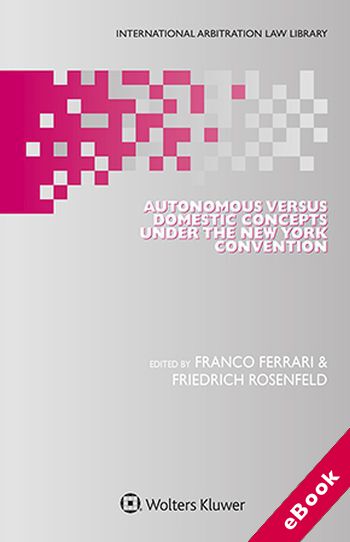
The device(s) you use to access the eBook content must be authorized with an Adobe ID before you download the product otherwise it will fail to register correctly.
For further information see https://www.wildy.com/ebook-formats
Once the order is confirmed an automated e-mail will be sent to you to allow you to download the eBook.
All eBooks are supplied firm sale and cannot be returned. If you believe there is a fault with your eBook then contact us on ebooks@wildy.com and we will help in resolving the issue. This does not affect your statutory rights.
Autonomous Versus Domestic Concepts under the New York Convention is a unique book that examines the New York Convention intending to identify the boundaries between autonomous and domestic concepts. The 1958 New York Convention is universally acclaimed as one of the essential instruments of international commercial arbitration. Although the Convention ensures that contracting States cannot justify failure to comply with their treaty obligations by reference to domestic law, the courts of different contracting States apply the Convention differently. This diverging case law arises from uncertainty as to whether certain concepts employed in the Convention must be construed autonomously or in light of domestic law. A diverse group of distinguished scholars, including some of the world’s leading voices on arbitration, have provided insightful contributions for this book which are sure to significantly add to arbitral practice and jurisprudence in the Convention’s more than 160 contracting States.
What’s in this book:
With extensive reference to case law from major arbitration hubs, this remarkable book sets out the methodology required to interpret the Convention as an instrument of uniform law. It applies this methodology to certain key concepts which include the following:
How this will help you:
This one-of-a-kind book provides an invaluable clarification of the extent to which the Convention leaves room for the application of domestic law and, if so, how to determine which particular domestic law may be applicable. It will be welcomed by counsel, judges, arbitrators, and academics throughout the States that have signed the New York Convention.